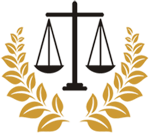Need a Personal Injury Lawyer?
Search Our Site
All Legal Articles
Read Related Legal Articles
Can I Sue a Driver Who Hit Me While Riding My Bicycle?
A bicycle rider hit by an automobile has roughly the same legal options as someone who was driving a vehicle. As in any other vehicle accident, you may file a claim with the other driver's insurance if he or she is found liable for causing the accident.
All traffic accident cases follow a basic protocol, which is attempting to resolve the case via an insurance settlement. If the insurance company is uncooperative, though, and your state allows it, you may file a personal injury suit against the at-fault driver.
Unless the other driver is deemed at-fault, you cannot make a claim against his or her auto insurer. Additionally, liability must be established to launch a successful lawsuit.
Protecting Yourself
At the time of the accident, take photographs of the scene, including your bicycle and the vehicle involved, using numerous angles for your photographs. Additionally, get the names and contact information from any witnesses, as well as the person driving the vehicle that hit you. File a police report but remember that your statement to the police will be part of the evidence in your case. For that reason, exercise care in what you say.
Seek medical care immediately, even if you do not feel injured. Some injuries only manifest in the days immediately following an accident. If you wait too long, the at-fault driver's insurer will claim something else caused your injuries. Also, do not give the insurance adjuster a recorded statement. It is the adjuster's job to save the insurance company money and his or her questions are designed to do just that.
It is also a good idea to create a written account immediately after the accident. Include every detail you can remember, while they are still fresh in your mind.
Filing Your Claim
Before filing your claim with the driver's insurer, compile all documentation relevant to your case. This includes any photos you took, the police report, your written account, and medical bills. If you hire an injury attorney to represent you, he or she helps you create a demand letter and sends it to the driver's insurance company.
If you have your own car insurance, or a family member does, you may be able to file a claim under your personal injury protection (PIP) coverage. If you live in a no-fault state and you have PIP coverage, you must file your claim this way unless the nature of your injuries qualifies for a claim against the other driver. If your claim is denied or you cannot reach a settlement, you may pursue a personal injury lawsuit.
Discovery
Once your attorney files your lawsuit, the discovery process begins. In this step, your attorney gathers witness statements and may take depositions. He or she also hires a number of experts to review your case, if applicable. Medical experts review your medical records, vocational experts determine your future ability to work, and a financial consultant evaluates the full extent of the economic impact of your accident. Finally, your attorney may hire an accident reconstructionist.
Settlement
After completing the discovery process, your attorney has a good idea of the damages you can claim and will then either make a settlement offer or open negotiations. If both parties agree on an amount, the settlement is put in writing and submitted to the court for approval in order to obtain a court judgment. If no agreement is made, your attorney represents you in a trial.
Damages
There are two types of damages: compensatory and punitive. Compensatory damages reimburse, or compensate, you for expenses such as medical bills, lost wages, and pain and suffering. Your medical expenses include both past and future medical bills. So, if your doctor recommends future treatments such as physical therapy, include this in your claim for medical expenses.
Punitive damages serve as punishment for the defendant and are reserved for cases where the defendant's behavior was particularly egregious or negligent. If the driver was DUI, reckless, or texting while driving, these are common examples of the type of behavior punitive damages are designed to address. A second intention of punitive damages is preventing future occurrences of the egregious behavior.
Schedule a Free Consultation
If someone driving a vehicle hit you while you were riding your bike, schedule a free consultation with a personal injury lawyer to discuss your case. Bring all relevant information to this initial consultation, including your journal. This helps the attorney fully understand your unique case. He or she will advise you on the merits of your case and help set reasonable expectations as regards possible damages.
